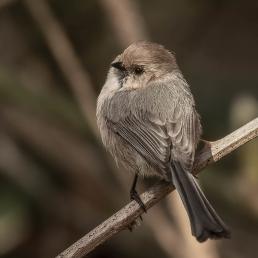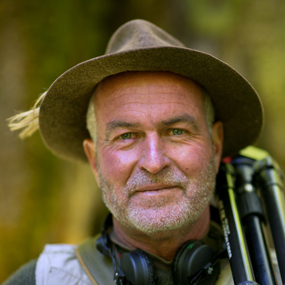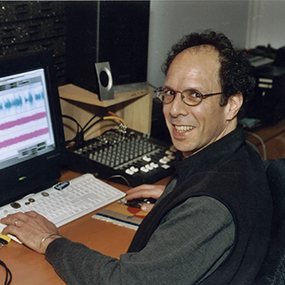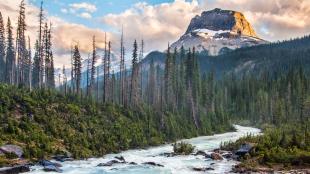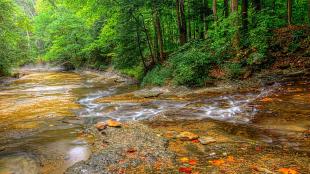

Join BirdNote tomorrow, November 30th!
Illustrator David Sibley and actor H. Jon Benjamin will face off in the bird illustration battle of the century during BirdNote's Year-end Celebration and Auction!
“Water makes every sound imaginable and occupies every frequency audible to the human ear and certainly spans the dynamic range from the faintest sound to near distortion,” says Gordon Hempton, the Sound Tracker.
The writings of John Muir can guide our ears, as we listen to the water music: “The deep bass tones of the fall, the clashing ringing spray an infinite variety of small, low tones of the current gliding past the side of the Boulder Island and glinting against a thousand smaller stones down the Ferny channel.”
In this episode of Sound Escapes, walk in Muir’s footsteps as you follow the sounds of the Merced River in Yosemite National Park.
Gordon Hempton: BirdNote Presents.
[Dulcimer Plays]
You're listening to Sound Escapes. I'm Gordon Hempton, the Sound Tracker.
John Muir was perhaps our greatest 19th Century naturalist. He's been called the father of our national parks because he led the campaign to designate Yosemite as a national park.
As soon as I opened up John Muir's writings, I found my mentor. He writes so accurately and poetically that I regard him as nature's first sound recordist simply using his most advanced available technology, which at the time was pen and paper.
Of all the sounds that John Muir describes in his many pages, I noticed that quite clearly the sound of water attracted his attention most:
“How delightful the water music: the deep bass tones of the fall, the clashing ringing spray, an infinite variety of small, low tones of the current gliding past the side of the Boulder Island and glinting against a thousand smaller stones down the Ferny channel.”
I felt that rather than just read his words that I would have to walk in his footsteps.
So today, we'll follow the sounds of the Merced River in Yosemite.
Water makes every sound imaginable and occupies every frequency audible to the human ear and certainly spans the dynamic range from the faintest sound, where you only think you hear the snow melt to near distortion when Vernal Falls is plunging and slaps onto the rocks
Let's listen…
[Dulcimer Fades]
[Soundscape of Zabalo River Wilderness Quiet Park]
Gordon Hempton: Thank you, John Muir. May we always protect what you sought to preserve.
[Dulcimer Plays]
Sound Escapes is produced by Mark Bramhill and John Kessler. Ashley Ahearn is our editor. Be sure to check out our website, BirdNote.org, to see photos.
This podcast is made possible by Jim and Birte Falconer of Seattle.
During our next episode, we will learn that deserts are not deserted when we travel halfway around the world to the Kalahari Desert of South Africa.
I’m Gordon Hempton. I hope you’ll join me.
[Dulcimer Fades]
